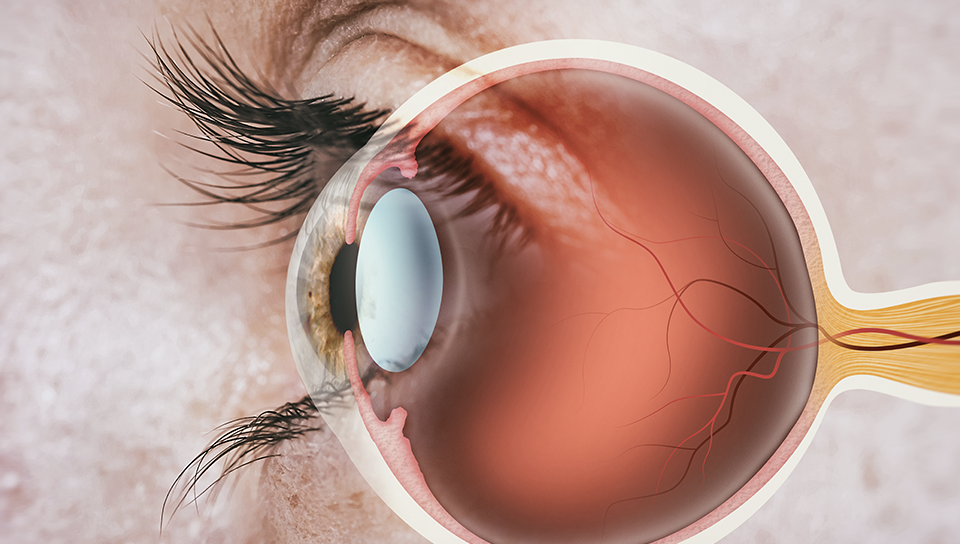Understanding Macular Degeneration and How to Prevent It
Blog:Understanding Macular Degeneration and How to Prevent It

Macular degeneration is a common eye condition that affects millions of people, particularly those over the age of 50. It can lead to significant vision loss and impair daily activities. This blog post will explain what macular degeneration is, its types, symptoms, and ways to prevent it, helping you maintain healthy vision for years to come.
What is Macular Degeneration?
Macular degeneration, also known as age-related macular degeneration (AMD), is a disease that affects the macula, the central part of the retina responsible for sharp, detailed vision. The macula enables you to see fine details clearly, such as reading text or recognizing faces. When the macula deteriorates, it can lead to central vision loss.
Types of Macular Degeneration
- Dry Macular Degeneration: This is the most common form, accounting for about 80-90% of cases. It occurs when the macula thins over time, gradually leading to vision loss. Small yellow deposits called drusen often appear under the retina.
- Wet Macular Degeneration: This less common but more severe form occurs when abnormal blood vessels grow under the retina and leak fluid or blood, causing rapid and severe vision loss.
Symptoms of Macular Degeneration
- Blurred or fuzzy vision
- Dark, blurry areas or whiteout that appears in the center of vision
- Difficulty recognizing faces
- Straight lines appearing wavy or distorted
- Decreased brightness or intensity of colors
Early detection is crucial because the progression of macular degeneration can be slowed with appropriate measures.
Ways to Prevent Macular Degeneration
While age and genetics play significant roles in the development of macular degeneration, there are several lifestyle changes and preventive measures you can take to reduce your risk.
- Healthy Diet:
- Antioxidants: Consume foods rich in antioxidants like vitamins C and E, beta-carotene, and zinc. These nutrients can help protect the macula from damage. Examples include leafy green vegetables (spinach, kale), fruits (oranges, berries), nuts, and seeds.
- Omega-3 Fatty Acids: Include fish like salmon, mackerel, and sardines in your diet, as they are high in omega-3 fatty acids which are beneficial for eye health.
- Lutein and Zeaxanthin: These carotenoids are found in high concentrations in the macula. Foods such as egg yolks, corn, and green leafy vegetables are excellent sources.
- Avoid Smoking:
- Smoking is a significant risk factor for developing macular degeneration. If you smoke, seek help to quit, as smoking can double the risk of AMD.
- Protect Your Eyes from UV Light:
- Wear sunglasses that block 100% of UVA and UVB rays when outdoors. UV exposure can contribute to the development of macular degeneration.
- Manage Chronic Conditions:
- Conditions like hypertension, high cholesterol, and cardiovascular disease can increase the risk of AMD. Keep these conditions under control through medication, diet, and exercise.
- Maintain a Healthy Weight and Exercise Regularly:
- Obesity and a sedentary lifestyle can increase the risk of macular degeneration. Aim for regular physical activity and maintain a healthy weight.
- Regular Eye Exams:
- Have comprehensive eye exams regularly, especially if you are over 50 or have a family history of AMD. Early detection can help manage the condition more effectively.
- Limit Blue Light Exposure:
- While more research is needed on the impact of blue light from digital devices on AMD, it's a good idea to limit screen time and use blue light filters or glasses to reduce exposure.
- Supplements:
- Consider taking supplements specifically formulated for eye health, such as those containing the AREDS2 formula (vitamins C and E, zinc, copper, lutein, and zeaxanthin). Consult with your eye care professional before starting any new supplement regimen.
Conclusion
Macular degeneration is a serious condition that can significantly impact your quality of life, but with awareness and proactive measures, you can reduce your risk and protect your vision. By maintaining a healthy diet, avoiding smoking, protecting your eyes from UV light, managing chronic conditions, staying active, and having regular eye exams, you can take important steps toward preventing macular degeneration. Remember, early detection is key, so make eye health a priority and consult your optometrist regularly.

